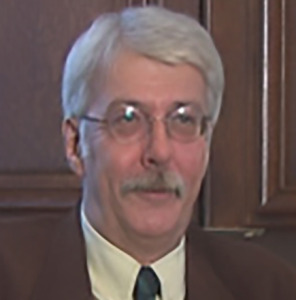Denise Bernot was a French academic who was professor of Burmese at the Institut national des langues et civilisations orientales from 1960 to 1989. She was the widow of Lucien Bernot (1919–1993) who was professor at the Collège de France in the chair 'Sociographie de l'Asie du Sud-Est'. She was an alumna of the École des Chartes.

Jacques Legrand is a French linguist and anthropologist. He worked as a translator at the French embassies in Mongolia and China from 1967–68. He specializes in Mongolian literature and history and the Mongolian language.
Centre de Recherche Berbère is a department at the Institut national des langues et civilisations orientales (INALCO) specializing in the Berber languages. The center is the oldest organization which focuses on Berber culture and language, being one of the very few to do so. It cooperates with the Institut royal de la culture amazighe du Maroc and programs at Moroccan universities.
Michel Soymié was a French scholar and author working in the field of Chinese popular religion and literature. As a professor at the École Pratique des Hautes Études (EPHE) in Paris he directed a research group working on the Dunhuang manuscripts collected in China by the Paul Pelliot expedition of 1906-1908 which eventually evolved into the Centre de recherche Civilisation chinoise. He was responsible for publishing the collaborative catalogue of the Pelliot Dunhuang manuscripts.

Anne Cheng is a French Sinologist who teaches at the Collège de France and specializes in Chinese history and the history of Chinese philosophy. Pablo Ariel Blitstein, the author of "A new debate about alterity," describes her as an "important representative of French sinology".

Gilbert Lazard was a French linguist and Iranologist. His works include the study of various Iranian languages, translations of classical Persian poetry, and research on linguistic typology, notably on morphosyntactic alignment. He also studied various Polynesian languages most notably the Tahitian language.
Sorbonne Paris Cité Alliance is a university alliance since 2019 and a former association of universities and higher education institutions (ComUE) for institutions of higher education and research in the city of Paris and the French department of Seine-Saint-Denis.

Gilles Delouche was a French scholar of classical literature of the Rattanakosin Kingdom. Delouche, who was born in Orléans, was Professor at the Institut national des langues et civilisations orientales (INALCO) since 1987, having taught from 1971 to 1987 at the Faculty of Arts, Silpakorn University (Thailand), which awarded him an honorary degree.
André Bourgey is a French geographer, a specialist of the Arab world.

The Bibliothèque universitaire des langues et civilisations (BULAC) is a major academic library located in Paris Rive Gauche and which has been open to the public since its 2011 opening. The library has a scope that includes all languages and civilisations that are not those of the Western World. It provides more than one million documents written in all languages, formed from the former collections of more than 20 libraries.
Salem Chaker is an Algerian linguist. A specialist in Berber linguistics, he is recognized as the "dean" of modern Berber studies.
Abdellah Bounfour is a Moroccan linguist and philologist specialized in Berber languages, literature and culture. He is an Emeritus University Professor at Institut national des langues et civilisations orientales (INALCO) in Paris.
Doris Bensimon was an Austrian-born French sociologist and academic whose research focused on the study of contemporary Judaism. She taught at the University of Caen and Institut national des langues et civilisations orientales (INALCO).
Konstantin Igorevich Pozdniakov is a Russian-French linguist who works on the comparative-historical linguistics of the Mande, Atlantic, and Niger-Congo families. He also works on Rongorongo of Easter Island.

Anne de Tinguy is a French historian and political scientist. Since 2005 she has been a University Professor of contemporary history at the Institut national des langues et civilisations orientales. She studies international relations, specializing in the foreign policy of Russia and Ukraine, as well as migration studies.
Daniela Merolla is a Professor in Amazigh / Berber Literature and Art at the INALCO, Institut National des Langues et Civilisations Orientales. Her work investigates intertextuality and multilingualism in African oral and written literatures, cinema, and websites. She developed the notion of “Amazigh/Berber literary space”.
Jacques Pimpaneau was a French scholar of Chinese. He was Chair of Chinese Language and Literature at INALCO, Paris.
The Institut des mondes africains (IMAF) is a French academic mixed and interdisciplinary research unit for African studies, in which the national research organisation CNRS, three other French national academic research institutions and two universities collaborate. They are the Institut de recherche pour le développement, the École pratique des hautes études (EPHE), the École des hautes études en sciences sociales and the Aix-Marseille University and the Pantheon-Sorbonne University.

Leili Anvar is an Iranian-born French writer and translator, specializing in Persian poetry and mystic literature. She is an associate professor in Persian language and literature at INALCO.
Christophe Balaÿ, was a distinguished French professor, linguist, and translator known for his contributions to Persian language and Iranian literature. Trained as a comparatist, he held prominent positions, including Professor of Persian at Institut national des langues et civilisations orientales (INALCO), Director of the Institut Français de Recherche en Iran, and Vice President for Research at INALCO.








